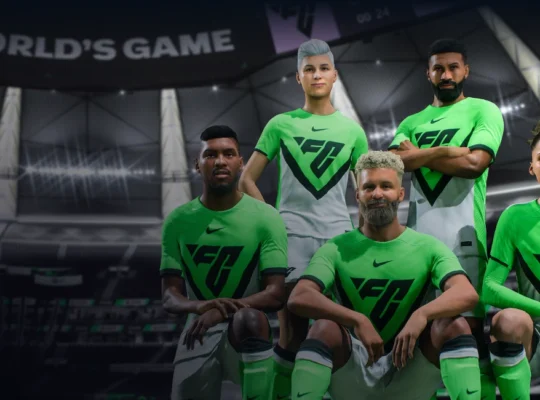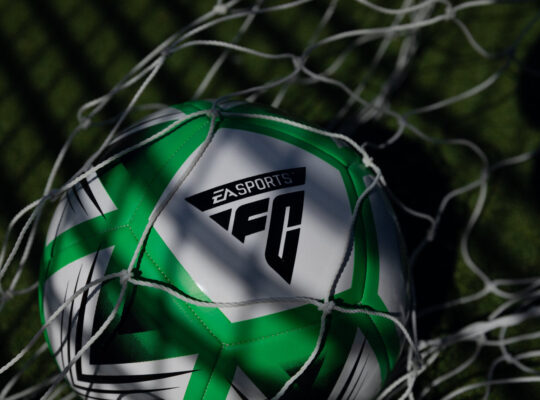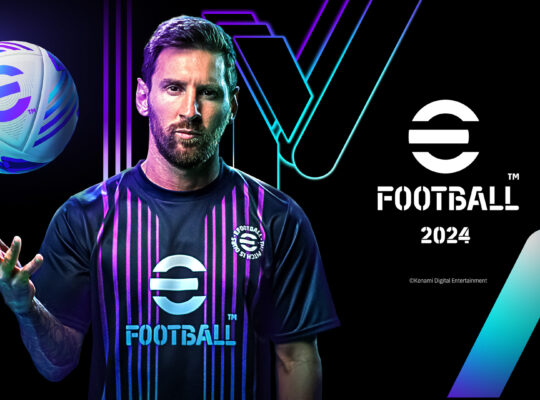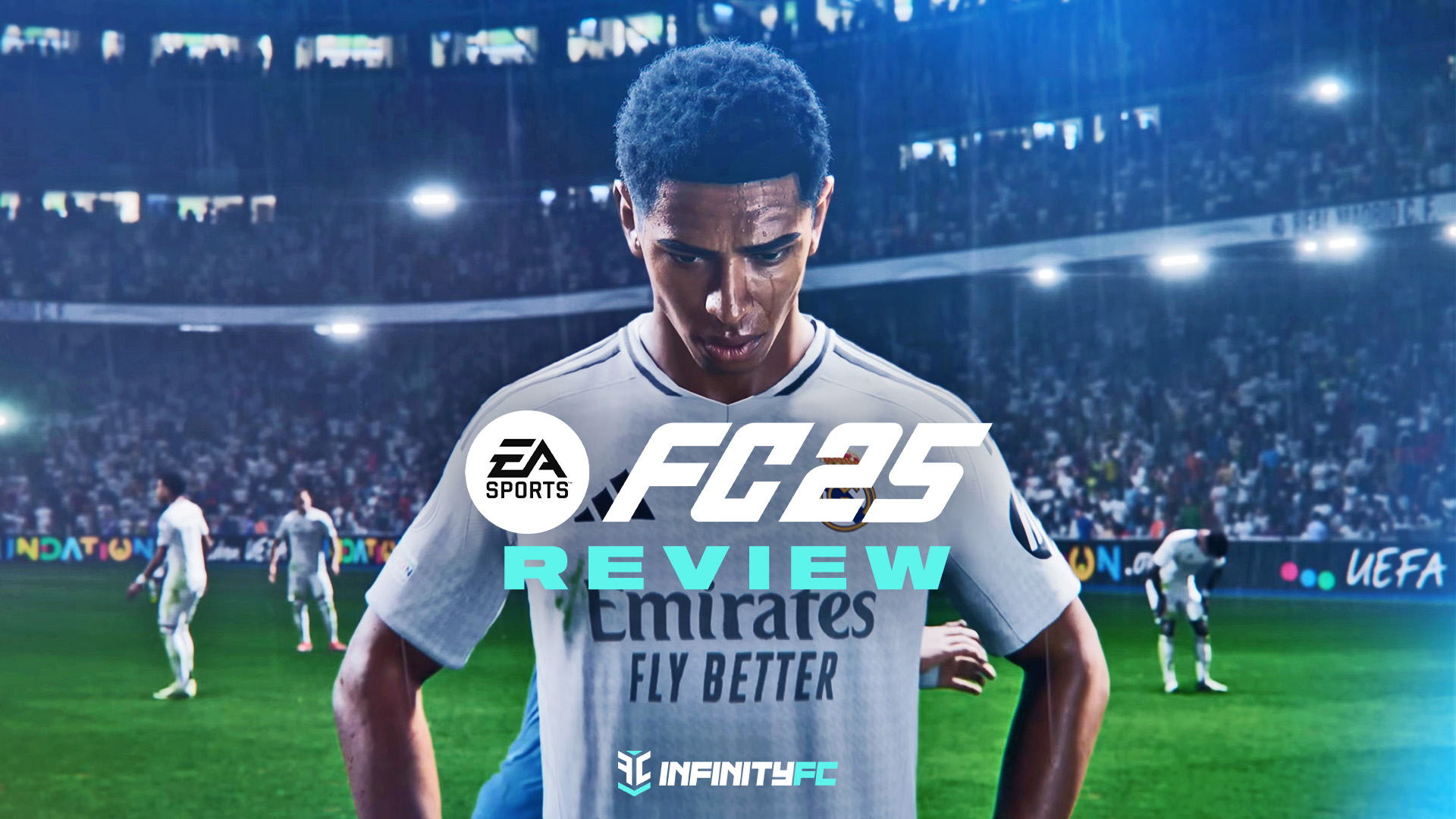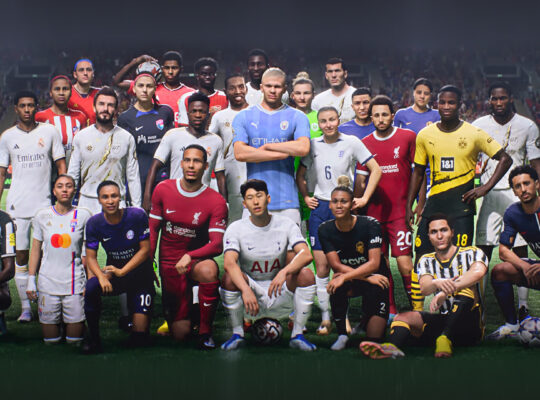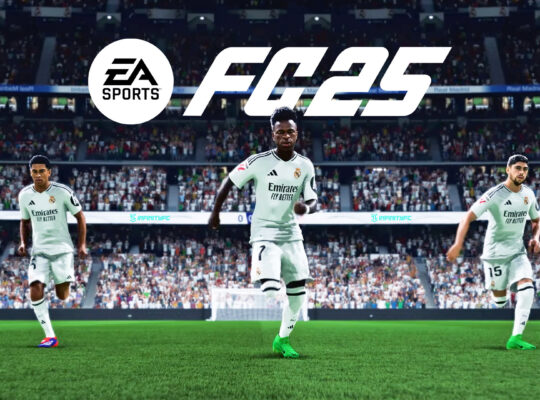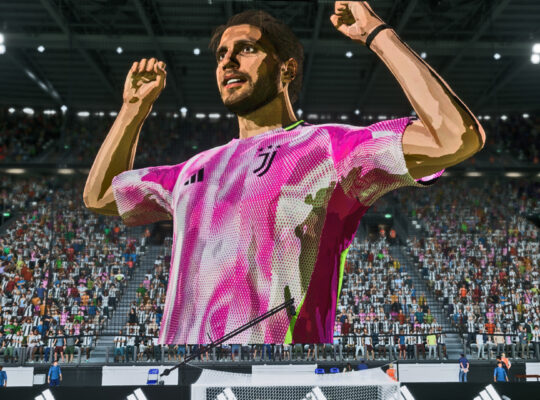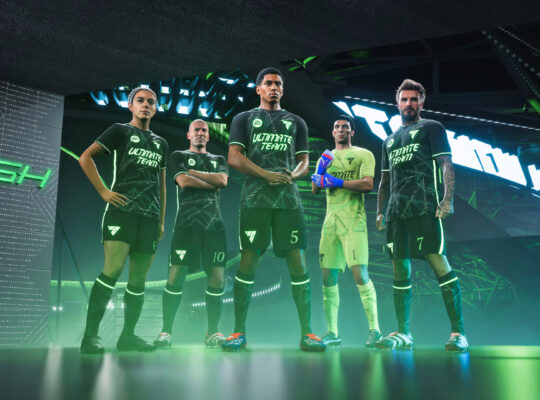Every year, football fans hope that EA’s latest offering will be the one. The one that takes things to the next level and delivers the ultimate football experience. With EA Sports FC 25, we have the second game since the series broke away from FIFA.
Expectations were high, and while it introduces some new ideas that attempt to push the experience forward, it is held back by some frustrating gameplay limitations. There are exciting additions here, but certain design decisions keep it from being the game it could have been.
FC IQ: A Step Toward Tactical Depth
One of the major changes in this release is the introduction of FC IQ, a system that assigns specialized roles to players based on their abilities. This pushes the game toward a more tactical experience, mirroring the detailed planning you would see in Football Manager.
It is no longer just about stats and playstyles but about building a squad where each player’s role complements the others. A wide player with the winger role, a midfielder assigned as a playmaker, or a target man leading the line, all these roles shape how your players behave on the pitch.
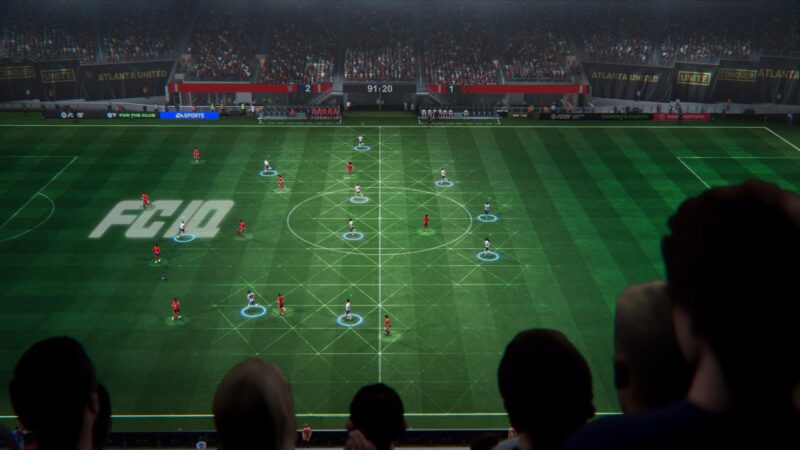
This is the feature that I was most anticipating and at first, I found the system engaging. I liked the added complexity that came with building a team not just around ratings but around specific roles. It gives you that extra layer of immersion, as if you’re managing a real squad, and it encourages people to view players as performing roles and not just playing a position.
There is a difference in the way Kyle Walker and Trent Alexander-Arnold play even though they are both right-backs. However, FC IQ feels more like a framework rather than a fully integrated system. You can see the ambition, but the execution sometimes struggles. Players stick to their assigned roles too rigidly, which can make the AI feel predictable at times. But I did find that those with strong attributes for a role perform decently, even if they are not officially assigned to it.
Rush: Fun Across Multiple Modes
Rush is another standout feature, adding a fast-paced, small-sided twist to the gameplay. This mode pops up in several places throughout the game. In Kick-Off, it is just a fun way to play a quick 5v5 match. In Ultimate Team, you pick a single player from your club and team up with others online, each controlling their own chosen player. The bonus system for earning extra points adds some variety, rewarding those who build their squads with certain restrictions like card rarity, nationality, or league.

In Clubs, Rush plays more like a 5-a-side drop-in game, offering a quicker alternative to full matches. It also has a presence in Manager Career Mode, where it features as youth tournaments. I really liked this implementation because it provides a way to put young players through their paces in competitive settings, which adds some depth to their development. Rush adds some much-needed variety across the game modes and helps to keep things fresh, even when the main gameplay starts to feel repetitive.
Career Mode: Improvements with Some Caveats
For what feels like the first time in years, Career Mode has seen some significant changes. You can choose to either manage as a real manager or create your own, using the new Cranium feature to fine-tune your manager’s looks. Cranium has done wonders for the game as players without face scans look more natural than ever, with many young players now having a game face as well. Now, when your scout brings you a hot prospect, there is a decent chance that they will look like their real-life counterpart.
Some excellent
examples of Cranium
Technology Faces 🔥🔥#FC25 pic.twitter.com/Mjfnnks2Aw— FCG (@FCGems_) September 21, 2024
Speaking of scouting, youth scouting in Manager Career has been improved and you can now scout nearly every country in the world. You can also get specific, asking your scouts to look up players in up to 4 different positions, and those who have a role+ in at least 3 of those positions.
Naturally, FC IQ plays a big role in Manager Career Mode, where building a well-balanced squad becomes more challenging. Finding the right mix of players with compatible roles can feel rewarding when it works, but it also comes with restrictions.
Players without the right roles do not perform at the same level, even if their attributes are solid. Using someone out of position can make them feel like dead weight, refusing to move unless you manually control them. This limits creativity in some ways, but I did not let it dictate my squad-building decisions too much. This is a mentality that I took with me in all game modes.
Bless you #EAFC25 for giving us a women’s career mode #mcwfc pic.twitter.com/ATzk80TcPR
— Kate Tigs 🇨🇦🇳🇱⚽️ (@KatelynTigs) October 14, 2024
The introduction of women’s football is a huge step forward for Career Mode, adding new challenges and making the experience more inclusive. I appreciated the effort EA put into this, especially since it felt like a natural addition rather than just a token gesture. As already mentioned, These improvements make Career Mode feel more fleshed out, but there is still room for more customization, particularly with tactical options.
However, not everything is perfect. Post-match interviews become repetitive fast, and the transfer market still has moments of frustratingly unrealistic moves. On the player side, Career Mode introduces nice options to start your journey as a wonderkid, a late bloomer, or rise through the ranks, but these tweaks are not game-changing. You can also now use Icons like David Beckham or Zinedine Zidane in Player Career. While these changes do not overhaul the mode, they add enough variety to keep things engaging, at the very least.
Ultimate Team: Familiar but Fatiguing
FC 25 introduces some fresh changes to Ultimate Team, enhancing its competitive edge and giving the mode a much-needed refresh. FUT Champions now offers a more streamlined format, Squad Battles feel less grindy, and Rivals demand more games to unlock full rewards.
The return of relegations in higher divisions helps balance the competition, while form-based matchmaking in friendlies prevents players from farming easy wins in lower divisions. These adjustments create a more competitive atmosphere than in FC 24, making the grind feel more purposeful.
#FC25 Champions Updates 👇
✅ Play-offs: 3 wins from 5 games
✅ Finals: 15 wins needed for Rank 1
✅ 18 total Play-off entries per season
✅ Better rewards for top finishes pic.twitter.com/qzuMuovOmj— 𝙄𝙉𝙁𝙄𝙉𝙄𝙏𝙔 𝙁𝘾 (@theinfinityfc) September 16, 2024
However, the core experience remains largely unchanged. Five-at-the-back formations and defensive play styles continue to dominate the META, slowing the pace of matches and limiting tactical freedom. The tighter structure of FUT Champions finals adds a layer of pressure, and while the rewards seem great on paper, the drop weight of packs has been disappointingly low.
Rush adds some fun variety, offering a welcome break from the intensity, but even with these updates, the lack of meaningful innovation makes it tough to stay excited about the mode year after year.
On top of that, EA has once again pushed the power curve aggressively. They introduced an upgraded version of Virgil van Dijk right out of the gate, making would-be META gold cards like Joe Gomez basically irrelevant from the start. I understand Ultimate Team is their cash cow, and they are relentless when it comes to selling packs, but I would have preferred a slower progression. It would have been more rewarding to climb the ladder gradually rather than seeing useful “baby META” cards get left behind so quickly.
🚨 van Dijk RTTK official card ✅
Stats ✅
Dynamic image ✅
Playstyle+ ✅ pic.twitter.com/f9JZvSy6Bk— Fut Scoreboard (@Fut_scoreboard) October 3, 2024
Simplified Tactics: A Missed Opportunity
While FC IQ introduces an interesting layer of depth to squad building, it can feel rigid and oversimplified at times. Players stick too closely to their roles, limiting creativity and making the AI predictable. The concept is a step in the right direction, but it lacks the nuance needed to be truly transformative.
Still, I want to give EA Sports the benefit of the doubt. Even Football Manager, known for its tactical depth, took years to move from its old slider system to the role-based approach that fans love today. The effort to modernize tactics is commendable, and while FC IQ isn’t perfect, it lays the foundation for something meaningful in the future.
Hopefully, they will allow for users to give further instructions to players outside of their given roles. If done correctly, it could get rid of some of the rigidness and break the monotony.
The major Negative is they only seem to stick to positions they are told to be in, thus not being pro-active and making blatant runs/following runners outside of their 'area' which is completely illogical and game breaking..
— Generic FC (@GenericEAFC) October 9, 2024
The updates to Hypermotion and adjustments to passing and shooting mechanics have also led to more natural movements. Quick, one-touch passing is now more challenging unless players have strong technical abilities or you play with a tiki-taka style. While some find this frustrating, I think it is a welcome change. It adds realism and forces players to be more deliberate in possession.
The developer behind the new passing mechanics is proud of his work and has every right to be. It feels rewarding when executed correctly. However, the passing mechanics struggle in the Clubs mode, where it can feel like your team cannot string together even the simplest passes. This makes it incredibly easy for opponents to press teams into submission, and it’s something that needs addressing.
Another frustration lies in the defensive AI, which feels stronger than ever. It is no surprise that many players have flocked to 5-at-the-back tactics, as the AI’s ability to cover space and block passing lanes has made breaking down defences incredibly difficult. While solid defending is essential for any football game, the balance feels off, making matches feel overly defensive and limiting tactical freedom.
Final Thoughts
EA Sports FC 25 offers flashes of brilliance, but it doesn’t quite reach the heights many fans were hoping for. There are genuine efforts to modernize the game, from FC IQ’s tactical system to the more natural passing mechanics and animations. These changes show that EA Sports is taking steps in the right direction, even if they are not perfectly executed. Frustrations like rigid role behaviour, overly strong defensive AI, and the inconsistency of passing in Clubs mode hold the game back, yet the foundation for something special is clearly here.
Much like Football Manager’s evolution over the years, meaningful change takes time. EA deserves credit for trying to move the series forward, even if it feels like they are still figuring things out. The new mechanics can be frustrating, but I found some of them refreshing—especially the challenge posed by the revamped passing system. Yes, five-at-the-back tactics are everywhere, and the transfer market in Career Mode still lacks realism, but this game is not without its moments of enjoyment.
Would I recommend it? If you are a die-hard football fan or someone who enjoys the iterative process of seeing a series improve, FC 25 is worth playing. It’s not perfect, but there are enough positives to make it a worthwhile experience, especially if you go in with measured expectations. With time and refinement, this series has the potential to truly shine. For now, though, it is a step forward, not a leap.


